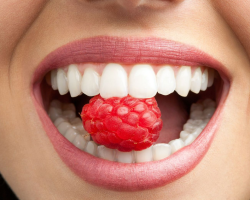The functions of human saliva are important for the body. Read more in the article.
Content
- What is saliva, saliva of man?
- The composition of human saliva
- What functions does human saliva perform - why is it needed: is it true that saliva performs protective functions?
- Saliva functions in the human digestive system: splitting proteins, complex carbohydrates
- Video: What can saliva tell about you?
- Video: Where does the saliva come from in the mouth and why is it needed?
- Video: Instructions for use. Saliva
In our body, there are different biological fluids - it is urine, blood, lymph, cytoplasm, etc. All this has a huge role in the processes of functioning. Many people do not even think that saliva is also of great importance in the work of different body systems.
Read on our website another article on the topic: "The cat has drooling from his mouth: reasons, what to do?". You will also find out why the cat is getting drooling when you are stroked.
From this article you will learn what functions of human saliva, and also what it is in general and how such a biological fluid affects the digestive tract. Read further.
What is saliva, saliva of man?

Saliva - This is a secret secreted by paired parotid, sublingual, submandibular glands and many small glands into the oral cavity. Human saliva is a transparent or slightly muddy colorless fluid with an unstable composition.
Different salivary glands distinguish secrets that are different in physical and chemical properties. It depends on what types of cells they consist of - serous, mucous membranes or their combinations. Read more:
- The parotid glands are formed by serous cells, so their secret is watery and contains protein.
- The hyoid glands are represented by mucous cells, and the saliva they released more viscous, rich in mucus.
- Both types of secretory cells are present in the submandibular glands, so that their secret is quite viscous, but the protein content is lower than in the saliva of the parotid glands.
- Among the small salivary glands there are serous glands - lingual, mucous membranes - palatine, lingual and mixed - Building, labial, molar, lingual.
The process of salivation is regulated by the nervous system. It intensifies when exposed to olfactory and taste stimuli, mechanical irritation of the oral mucosa, chewing food. The formation of saliva is reduced during stress, sleep, as well as with dehydration.
At rest, saliva is secreted without stimulation unnoticed by humans. Normally, about two liters of saliva are distinguished in an adult per day. In some pathological conditions, a significant decrease or even the complete cessation of salivation is possible - xerostomy (feels like constant dry mouth), or excessive saliva formation - hypersalivation.
The composition of human saliva

The secrets of the salivary glands are mixed in the oral cavity, which is saliva. But in its pure form it is almost impossible to distinguish even at the stages of formation, therefore, in a broader sense, the saliva means the entire oral fluid. It is called mixed. In addition to the secret of secrets, it includes:
- Remains of food
- Plaque
- Sloven epithelium
- Blood cell components
- Bronchial secret
- Bacteria
- Viruses
- Fungi and products of their life
Directly the secret of the salivary glands has the following composition:
- Water (approximately 99%)
- Inorganic substances (represented both in the form of salts and individual ions):
- Macro elements: sodium, calcium, magnesium, potassium, phosphorus, sulfur, chlorine
- Microelements: iron, nickel, copper, zinc, manganese, fluorine, bromine, iodine
- Organic substances:
- Protein compounds: simple proteins (albumins, globulins), glycoproteins (mucin, immunoglobulins), enzymes (of the most significant - amylase, maltase, lipase, lysozyme)
- Lipids (cholesterol, free fatty acids, glycerolipids)
- Carbohydrates (glucose, sucrose, free glycosaminoglycans)
- Nebel nitrogen -containing substances (urea, amino acids)
- Hormones (mumps, insulin, somatostatin)
- Vitamins (mainly B vitamins and ascorbic acid)
Some of the substances, for example, lysozyme, mucin, mumps are produced by salivary glands, but most of it falls into saliva from blood flow.
It is worth knowing:
- The composition of saliva differs depending on age and gender, human health, and even from the time of day.
- For example, in the elderly, the level of calcium is often increased, which leads to increased formation of tartar.
- The changes in the composition may affect the use of drugs, for example, antidepressants or diuretics.
- The presence of certain diseases, such as diabetes, disorders of the nervous system and the gastrointestinal tract, also affect the composition.
When using certain food products, it is also possible to change the composition, which will appear in the shift of the acidity indicator (pH) of saliva in the acidic or alkaline side.
- Carbonated drinks, acidic juices and fruits, sweets acidify saliva, and it becomes a beneficial environment for the growth of pathogenic microorganisms.
This, in turn, leads to caries and other dental problems.
- Nuts, cheese, vegetables, herbs contribute to a more alkaline saliva reaction.
On the one hand, this provides protection against caries, but on the other hand, it enhances the formation of tartar and the risk of periodontal diseases.
What functions does human saliva perform - why is it needed: is it true that saliva performs protective functions?

Saliva is an important biological fluid that supports the integrity of the organs and tissues of the oral cavity and their correct functioning. But on this its role does not end. Saliva performs many functions, most people do not think about some of them. Why is it needed? These are the functions of a human saliva:
- Cleaning
Saliva mechanically washed out the remains of food, plaque, bacteria due to continuous secretion from the oral cavity.
- Moisturization and lubrication
Saliva moisturizes the mucous membrane of the oral cavity, preventing its drying and inflammation. Due to the protein of mucin, this biological fluid becomes viscous and acquires enveloping properties. It lubricates the mucous membrane and protects it from damage, exposure to high and low temperatures and attaching harmful microorganisms. She also forms a protective film on the enamel of the teeth - Pelliculus.
- Buffer function
Saliva supports the optimal acid-base balance in the oral cavity, mainly using bicarbonates and phosphates. It has the ability to neutralize acids, resulting in their aggressive effect on the organs of the oral cavity. Normally, the acidity of saliva is within the limits from 5.6 to 7.6. The higher this indicator, the more a healthy environment in the oral cavity.
- Remineralization
Saliva replenishes the reserves of trace elements and minerals that are washed out of tooth enamel when a environmental reaction changes. Thanks to this function, the health of teeth and periodontal health remains.
- Antibacterial protection
The saliva enzyme is lysozyme, shows bactericidal (damages cell walls) and bacteriostatic (prevents growth and reproduction) properties against many pathogenic microorganisms. In addition, immunoglobulins contained in saliva support the immunity of the oral cavity.
- Stopping small bleeding
The presence in the mixed saliva of blood coagulation factors (thromboplastin and prothrombin) ensures rapid regeneration of any minor damage in the mouth.
It is worth knowing: Thanks to the moisturizing and enveloping properties, saliva is involved in pronouncing sounds and the formation of articulate speech.
Is it true that saliva performs protective functions?
- Summarizing all of the listed functions, we can conclude that saliva gives a comprehensive protection of the oral cavity from various harmful factors: mechanical, thermal, chemical and biological.
The health of the oral cavity is the key to human health, because there begins the process of digesting food. The state of other organs and systems of a person depends on how correctly the digestive system works. Therefore, digestion is another important role of saliva, which should be considered separately.
Saliva functions in the human digestive system: splitting proteins, complex carbohydrates

Food is only a few seconds in the mouth. But the process of its digestion begins there. In response to mechanical irritation of the mucosa when chewing food, salivary glands begin to work more actively. The released saliva performs the following functions in human systems as the first digestive juice:
- Food breakdown
Partially processed food becomes accessible to taste receptors, appetite awakens. The food breaks up into individual components under the influence of enzymes.
- The splitting of complex carbohydrates
It occurs with the participation of two main enzymes: amylase and maltase. Amilase breaks the molecules of starch and glycogen to Maltose and sucrose. Further, maltase is included in the process - it turns maltose into simple sugar (glucose). In this form, carbohydrates fall into the stomach and intestines, where they are easily and fully absorbed.
- Protein splitting
Perhaps under the influence of proteolytic enzymes: ribonuclease, peroxidase, transaminase. They act on nucleic acids of viruses, which ensures an antiviral protection of the oral cavity. The saliva does not affect the digestion of food proteins.
- Fat splitting
It occurs under the influence of lipase. It breaks down triglycerides into glycerides and components of fatty acids that can absorb from the intestines into the bloodstream. It is the lipase of saliva that helps the newborns to absorb the fats of breast milk, when their digestive system is not yet perfect.
- Formation of a food lump and swallowing food
Saliva moans particles of chewed food and, with the help of mucin, glues them into a lump. It easily swallows with saliva and slides into the esophagus.
- Reflex secretion of digestive juices
An increase in salivation stimulates the production of gastric and other juices for further digestion of food.
The benefit of saliva for effective digestion and protecting the oral cavity is difficult to overestimate. The high -quality performance of all functions is an indicator of a good state of human health. Saliva can be used as an indicator to identify certain pathologies along with clinical blood or urine tests. This very promising direction in diagnosis is used, for example, to determine the level of free hormones, herpes virus, the presence of diabetes in humans and even the fact of the use of narcotic substances.
Video: What can saliva tell about you?
Video: Where does the saliva come from in the mouth and why is it needed?
Video: Instructions for use. Saliva
Read on the topic:







